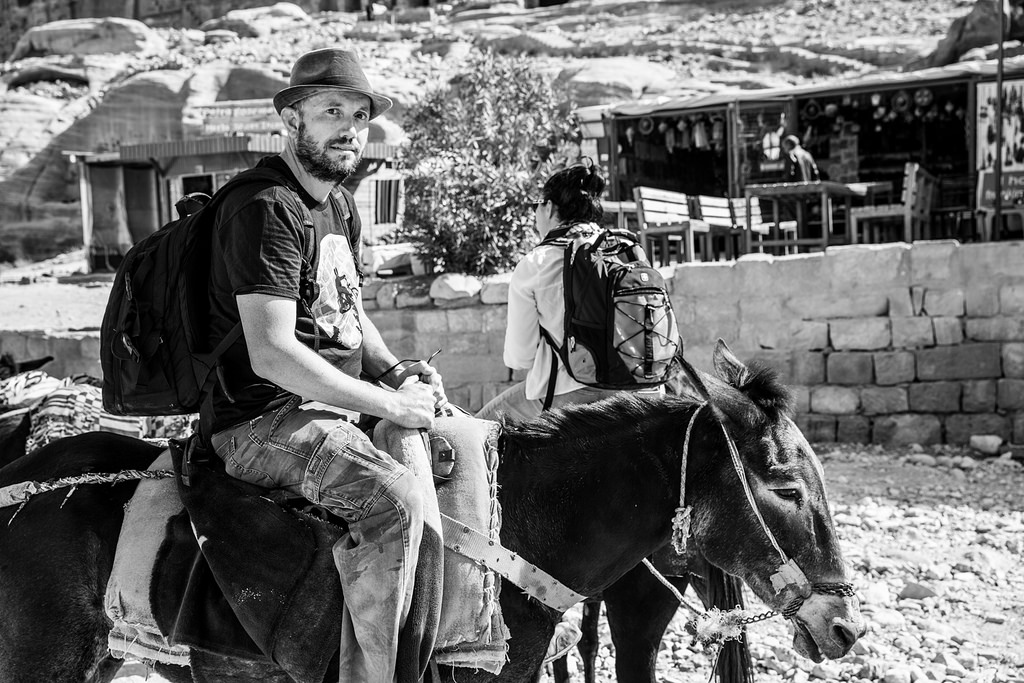 I have sincere appreciation for pastors. That might surprise some people, since I’ve written a lot about my struggle to sometimes trust men and women of God. But despite the experiences with pastors that have bruised my ability to trust, I also recognize and celebrate the numerous men and women in Christian leadership who have played the roles of shepherds and servants on my spiritual journey, helping me in big and smalls ways to engage a path toward truth, hope, and peace.
I have sincere appreciation for pastors. That might surprise some people, since I’ve written a lot about my struggle to sometimes trust men and women of God. But despite the experiences with pastors that have bruised my ability to trust, I also recognize and celebrate the numerous men and women in Christian leadership who have played the roles of shepherds and servants on my spiritual journey, helping me in big and smalls ways to engage a path toward truth, hope, and peace.
One pastor who was a bright light in my life I met at Vienna Presbyterian Church when I lived in Northern Virginia. Ruth Everhart was an interim pastor at VPC. Her willingness to ask me difficult questions helped to change how I see God and how I believed God sees me.
I met Pastor Ruth twelve years ago during a time when I was journeying through my first battle with depression. Since high school, I’d experienced the occasional mood swing now and then, but mood swings I could shake. What I felt at the time was like a dark and unfamiliar presence that followed me around. I tried to ignore it. I tried to pray it away. I tried to pretend it was just a passing mood swing.
Raised Baptist, the church I grew up in didn’t recognize depression as anything more than an attitude problem, a difficult season that showcased a soul being disconnect from God. My personal beliefs about mental health had evolved from what I’d been taught as a child. I fully believed that “being depressed” wasn’t something to be ashamed of or embarrassed by, even when counseling or medication was necessary to get better. Still, at the time, I wasn’t ready to admit that I was depressed or needed help.
One evening, after attending a youth group volunteers meeting, I ran into Pastor Ruth on my way out of the church. “Matthew.” Ruth’s voice is assertive but kind. “I’m happy to see you, I’ve been meaning to talk to you.”
“What about?” I asked.
“Honestly, I just want to know how you’re doing. Why don’t we set up a time to have coffee.” Pastor Ruth and I met at a local diner the following morning. I was nervous about the meeting. It had been my experience that any time a pastor set up a meeting I was more often than not in trouble or potentially in trouble.
After some smalltalk, Ruth’s complexion became more serious. “I wanted us to get together because I’m worried about you.”
“Worried about me? Why is that?”
“I see sadness in you.” Her words cut through my skin and hit my soul. I felt the whites of my eyes turn shades of red as I fought back tears. “Please don’t take this as anything except concern,” she said. “But your usual bright spirit, Matthew, seems dimmer than before. And I just wanted you to know that I’m here for you if there’s something you need to talk about.”
By that time, I was wiping tears away from both eyes. I tried to pay attention as she shared a personal story, but honestly, I was struggling to listen, too busy fighting a war inside my head. Do I dare tell her that I’m depressed? Or should I just keep my problems to myself. That battle raged on until I heard Pastor Ruth say these words: “Are you depressed, Matthew? It’s okay if you are. But I’m pretty sure I can see depression on your face. Only because I’ve seen it on my own face.”
Those few short sentences from Pastor Ruth freed me that day. They didn’t take away my sadness, but they gave my soul permission to become vulnerable and broken in front of the type of person that I hated being vulnerable and broken in front of. Eventually, I conjured up enough guts to say aloud, “Pastor Ruth, I’m in a very dark place and I don’t know what to do.”
That conversation with Pastor Ruth and the handful of conversations that we engaged after that changed the course of my life. Her willingness to trust her gut and engage me with very poignant questions that cut through my fear was a first step for me on a very different path. Often I find myself longing for a pastor or spiritual leader to ask me difficult questions, to trust their gut and be willing to push me outside of my boundaries with the kind of questions that hurt before they heal. Because that’s the kind of faith that changes people’s lives. That’s the kind of pastor or spiritual leader you learn to trust.
A year later, Pastor Ruth was offered a job pastoring a church in another state. Unfortunately, we don’t keep in touch. But I’m grateful for that short time twelve years ago when she brought me water from the well, when she helped me imagine a God who loves me regardless of my state, a God who is unafraid of finding me in the dark corners of life, a God who doesn’t need me to be happy, only honest.
Join the MinistryMatters.com “Why Ministers Matter” blog tour to read as today’s leading pastors and authors share their stories of ministers who made a difference in their lives. Visit MinistryMatters.com/blogtour for a complete list of virtual tour stops and to link up your own post about a minister who mattered to you!
Viagra is for the treatment of inability to get or keep an hard-on and similar states when erection is of low quality. When you buy remedies like cialis from canada you should know about cialis online canada. It may have a lot of brands, but only one ATC Code. Erectile disfunction, defined as the persistent impossibility to maintain a satisfactory erection, affects an estimated 15 to 30 millions men in the America alone. Sexual soundness is an substantial part of a man’s life, no question his age etc.






It’s interesting that pastors take all kinds of flak for worship service details or how the children’s ministry is going, but when it comes down to it, we really need people who are willing to be vulnerable and to reach out to us, asking tough questions sometimes. I also think a pastor should have some kind of capacity for empowering people, but the healing part comes first for sure.
Beautiful post. It’s so important that church leaders acknowledge that depression and other mental illnesses are real and nothing to be ashamed of. Thank you for this.
Thanks for posting this…..so beautifully expressive. So wish that was the relationship available to everyone….it would change the world’s perception of a judgemental God and hypocritical Christians.
Hi MatthewThis brings joy and buckets full of relief to my heart. I call it being lost in the 3-d forest: the forest of depression, despondency and despair. I suffer from Fm/CFS and I have been wandering for along time in that forest, before our Lord brought sweet acceptance to my heart. I belonged to a Pentecostal congregation when this illness was diagnosed, and I found the teaching so hard and cruel that I have to praise and thank our God for everything that happens in our life. I think church people must be very careful, for if there is not love, there is definitely a big problem.
I do not share your appreciation for the “profession” of pastors. They are a lazy useless bunch. Even the picture of the person who blogs makes me sick. His stupid “hipster” hair cut, semi-shaven face, and feminine expression says it all. Bet you won’t post this one. They are nothing but a club of cronies protecting their own and living on the backs of working people. We don’t need them or all those stupid tax-free decaying utility sucking buildings. Useless.
I’m sorry you’ve had such bad experiences with pastors, Judith. Most pastors enter ministry out of a sincere desire to help people and a feeling of being called into that line of work by God. They work long hours, are basically on-call 24/7, and deal with a lot of crap.
Many pastors might agree with you on the “utility-sucking buildings” thing, though. It’s a shame when churches sit idle five or six days a week. Good thing many are also housing day cares, food pantries, AA meetings, and more.
Wait, I’m confused. Do you hate pastors? Or authors? Or bloggers? Or men who shave? Or people born with a specific facial bone structure configurations?
Thank you, Matthew. This is often the hardest part of the job – taking a risk and asking hard questions. Sometimes, the result is rich and satisfying – as in the conversation you describe here. Her gut was Holy Spirit inspired and you responded in kind. But it’s a risk for pastors to do this – one that hurts when it doesn’t go well. Sometimes people lash out, or circle the wagons or any one of a number of other less than positive outcomes. We are always grateful when our words/questions are received with grace. But it’s a risky business – something most people don’t think about much when it comes to pastoring. Like a lot of other things (and I’m sure like a lot of other professions), there is much more to the job than the up-front parts. Much more – in fact, for my money, the up-front parts pale in comparison to the work done in coffee shops, hospital waiting rooms, mortuaries.
My Pastor Ruth was named Pastor Cheri. I remember feeling so nervous telling her that I was taking Zoloft. She said, “Oh really, me too!” Since then, I have always tried to be that kind of pastor to people. http://morganguyton.wordpress.com/2012/02/05/pastor-cheri/
I loved this post. I had a few bad pastors as well, but a couple great ones that changed all of that for me. Correctly showing God’s love is a gift that few have, but when they use it, it changes lives forever. Thanks for the goodness, MPT.
I am touched. I think that religion is the culprit. It has a way of misrepresenting God’s character and ignoring the real mission of Jesus Christ. I guess thats why Jesus reserved his harshest criticism for the religious system. He came to heal the broken hearted and set the captives free. Thats us folks! It’s really good news!!!
I really enjoy writing about the treasure He put in each of us. If you’re interested, check me out at thomasmcgreevy.com.
I love this. Thanks for sharing this, Matthew.
Pastors could use some appreciation. Most pastors make very little money and many are not offered benefits that other people in full-time careers take for granted, like health insurance and retirement plans. They are often not trained in psycholgy and counseling, yet are expected to act in this capacity. They get called to see very sick people in the hospital. They get called to death beds. They are with families who are struggling with hard news about a dying family member. They see dead kids. And have to pull it together to put on the funerals for the young and old alike. Like most helping professions, burnout is common. Helping professions let you see the best and worst of humanity on a daily basis. Also, they are subject to the political whims of their congregation. Every pastor’s kid I knew growing up, including my husband, was often unceremoniously sent from their homes because mom or dad got fired again and had to go find a job in another city. It’s not unusual for a PK to attend several different schools throughout K-12, losing friends with every move. It’s a hard and often thankless job. Raising my glass to my pastor friends and family tonight (not right this second, it’s still a little early. but definitely sometime this evening)
Thanks, man.
As to Judith above– there’s good and bad pastors like there’s good and bad in any profession. I’m sure you’ve seen what you’ve seen. But don’t let those experiences paint the rest of the canvas.
Amen. Thanks for the raw honesty.
Thanks, Matthew, for kind words and understanding. Pastors are expected to be a counselor, worship leader, budget balancer, visionary, monastic guru, theological expert, mr/mrs fix-it, janitor, prophet/ fortune teller, pray-er. And we are really simply human beings trying to connect people to each other and to God.
Sorry Judith you see our job as leeches and meaningless. Most weeks I am called to counsel someone who is grieving because they have lost a loved one or lost the ability to live in their own home any more, I am called upon to help those who are hungry and cannot make their gas bill this month, I try to connect the Body of Christ to the needs of the neighborhood–sometimes both are reluctant to meet, I try to remind people that we aren’t put here on earth for our own pleasure but to love others because we have been so greatly loved by God. No it is not earthshaking what I do. No the course of nations are not affected directly by my calling. But then again, when I worked in retail, the earth didn’t shake either, nor were nations changed. I pray that one word I speak, one act of love and kindness, someone finds hope and healing despite the fact that I am very much broken myself.
Thank you again, Matthew. Blessings to you and yours
Thank you. Depression has cut deep gashes in our family tree–even taken some limbs. That’s why I’ll chat about depression with just about anybody, much to my husband’s chagrin. Depression is a part of me AND I am God’s own mess–I couldn’t hide it even if I tried.
Again, thank you.
–Leslie
[…] back beyond a week, but this one is too good to pass up) Matthew Paul Turner shares how a pastor changed his life simply by asking him about his […]